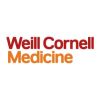Managing Heart Disease with Medication: Key Strategies for Better Heart Health
- Understanding Heart Disease Medication
- Types of Medications for Heart Disease
- The Benefits of Medication in Managing Heart Disease
- How to Manage Heart Disease with Medication Effectively
- Real-Life Stories of Managing Heart Disease with Medication
- Start Managing Your Heart Health Today
1. Understanding Heart Disease Medication
Managing heart disease with medication plays a crucial role in preventing complications, reducing symptoms, and improving quality of life. For individuals diagnosed with conditions like coronary artery disease, heart failure, or high blood pressure, medications are often prescribed to help control symptoms, slow disease progression, and reduce the risk of severe health events like heart attacks or strokes.
Heart disease medications are not a one-size-fits-all solution. They must be tailored to an individual’s unique condition, lifestyle, and health history. Whether you’re managing high cholesterol, hypertension, or arrhythmias, medications can be a cornerstone in your treatment plan.
2. Types of Medications for Heart Disease
There are several types of medications prescribed for heart disease, each targeting different aspects of heart health. Here are some common categories:
- Statins: These drugs lower cholesterol levels, reducing the risk of plaque buildup in arteries, which can lead to heart attacks.
- Beta-blockers: Used to lower heart rate and blood pressure, beta-blockers help improve heart function and reduce the risk of heart attacks.
- ACE Inhibitors: These medications help relax blood vessels, lower blood pressure, and reduce the strain on the heart, especially for those with heart failure.
- Blood Thinners: Also known as anticoagulants, these prevent blood clots, reducing the risk of stroke in individuals with atrial fibrillation.
- Diuretics: Diuretics help reduce fluid buildup, a common problem in heart failure, by making the kidneys remove excess sodium and water.
Each medication has its own specific role and may be used alone or in combination, depending on the type of heart disease and individual health needs.
3. The Benefits of Medication in Managing Heart Disease
Proper medication management offers significant benefits for individuals with heart disease. These include:
- Prevention of Heart Attacks and Strokes: By controlling blood pressure, cholesterol, and blood clots, medication helps prevent severe heart-related events.
- Improved Heart Function: Certain medications, like ACE inhibitors and beta-blockers, can help the heart pump more effectively, reducing symptoms of heart failure.
- Long-Term Health Improvements: Medication, when combined with a healthy lifestyle, can help manage heart disease in the long term, improving life expectancy and quality of life.
- Control Over Symptoms: Medications like diuretics and beta-blockers can relieve symptoms like swelling, shortness of breath, and fatigue, making daily activities more manageable.
Ultimately, medication helps reduce the risk of complications and empowers individuals to manage their heart health more effectively.
4. How to Manage Heart Disease with Medication Effectively
To maximize the effectiveness of heart disease medications, it’s essential to follow a few key guidelines:
- Follow Your Doctor’s Instructions: Always take medications as prescribed. Missing doses or altering the dosage without consulting your doctor can lead to ineffective treatment.
- Regular Monitoring: Regular follow-ups with your healthcare provider are essential to monitor the medication's effectiveness and make adjustments as needed.
- Adopt a Heart-Healthy Lifestyle: While medications are vital, combining them with a balanced diet, regular exercise, and avoiding smoking or excessive alcohol use can enhance heart disease management.
- Stay Informed: Educate yourself about your heart condition and the medications you’re taking. Being proactive in understanding your treatment options helps you make informed decisions about your health.
Effective management of heart disease is not just about taking medication—it's about embracing a comprehensive approach that includes lifestyle changes and consistent medical oversight.
5. Real-Life Stories of Managing Heart Disease with Medication
Meet Lisa, a 60-year-old woman who had been diagnosed with high blood pressure and early-stage heart failure. By following her doctor’s recommendations, including taking ACE inhibitors and beta-blockers, she was able to stabilize her condition and prevent further deterioration of her heart function. Regular check-ups and a healthy lifestyle have allowed Lisa to live an active life and avoid hospitalization.
Another example is Mike, a 50-year-old man with high cholesterol and a family history of heart disease. His doctor prescribed statins, and after a few months of regular use, his cholesterol levels improved significantly. He also combined his treatment with a healthier diet, leading to better overall heart health and a decrease in the risk of heart attacks.
These stories demonstrate how medication, when used effectively, can make a significant difference in managing heart disease and improving quality of life.
6. Start Managing Your Heart Health Today
Managing heart disease with medication is an essential part of controlling your heart health and preventing serious complications. By working closely with your healthcare provider and sticking to your prescribed medication plan, you can significantly reduce the risks associated with heart disease.
If you’re looking to manage your heart disease more effectively, it’s time to take action. Start by consulting with a healthcare professional who can help you choose the right medications for your condition and lifestyle. Don’t wait—take the first step towards a healthier heart today!




















